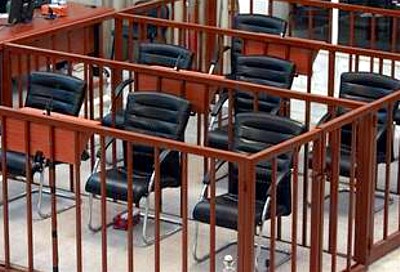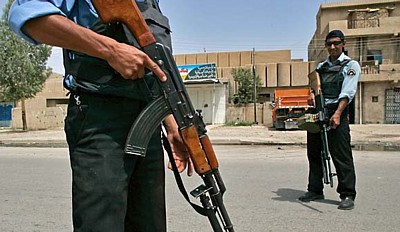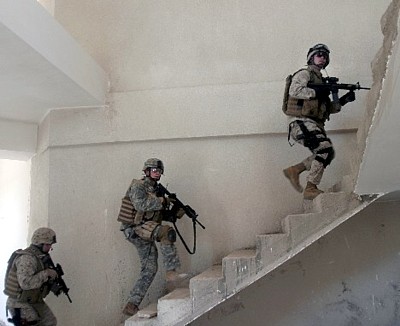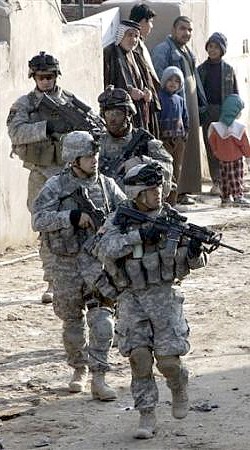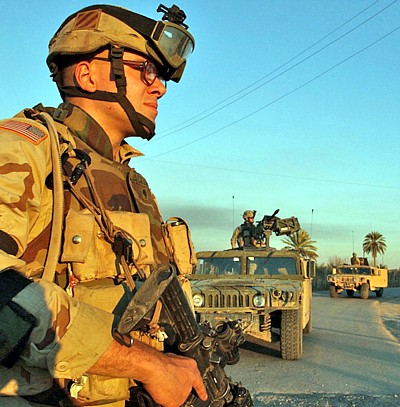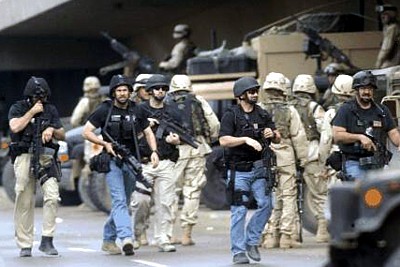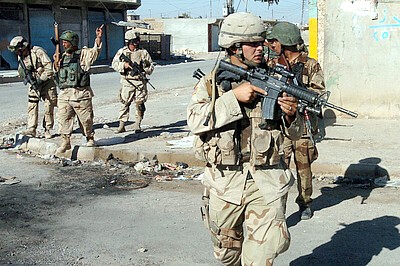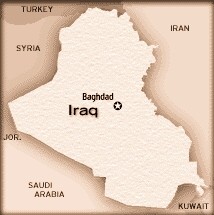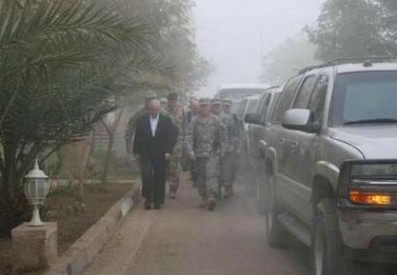Analysis: Army seeks authority for repeat deployments for Guard, Reserves
 A member of the Missouri Army National Guard at farewell ceremony before deploying to Iraq
A member of the Missouri Army National Guard at farewell ceremony before deploying to IraqWASHINGTON, Dec. 28 (UPI) -- Strapped for soldiers, the U.S. Army wants new authority to send National Guard and Reserve soldiers back to Iraq for repeat deployments, even those who have already served the maximum time allowed by the Pentagon.
A national commission looking at National Guard and Reserve issues will decide in March whether to endorse the Army's plan, a change that could affect the 522,000 citizen-soldiers in the Army National Guard and Reserve, and more broadly the 800,000 reservists serving in all the military services.
The policy in question limits reservists to 24 months cumulative mobilization on active duty, and they may not be involuntarily deployed to Iraq or Afghanistan more than once. If a reserve soldier is to serve more than that, they must volunteer. The Pentagon's desire is to be even more strict, with active duty service limited to one year out of every six -- that is, a year deployed followed by five years at home, unless a soldier volunteers for additional time. They are not expected to deploy beyond those limits, in deference to their status as citizen-soldiers.
Many active-duty soldiers are deploying every other year, spending less than a year at home with their families in between combat rotations.
Read the rest at UPI


